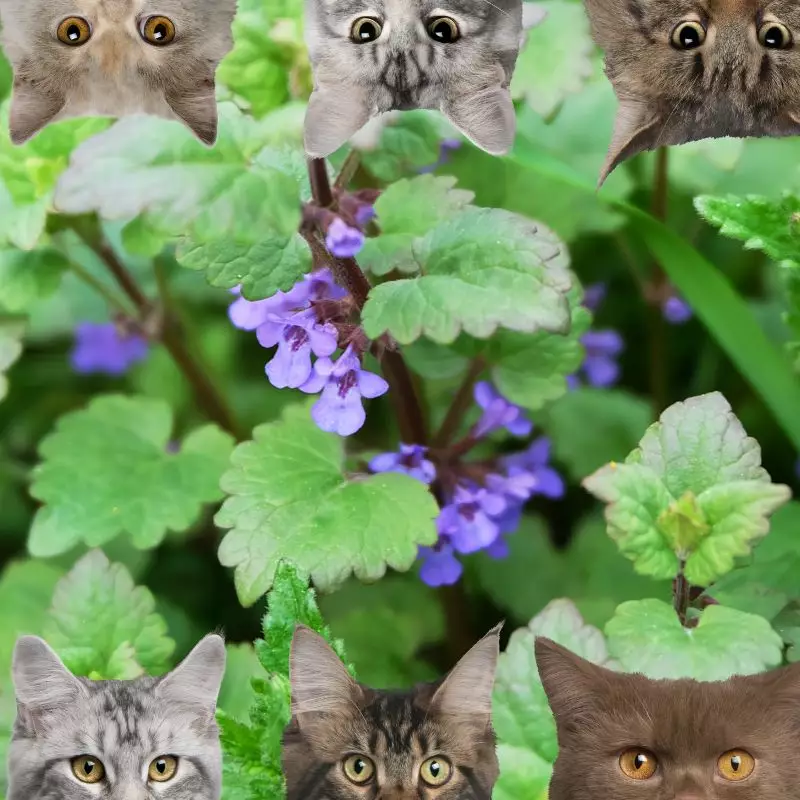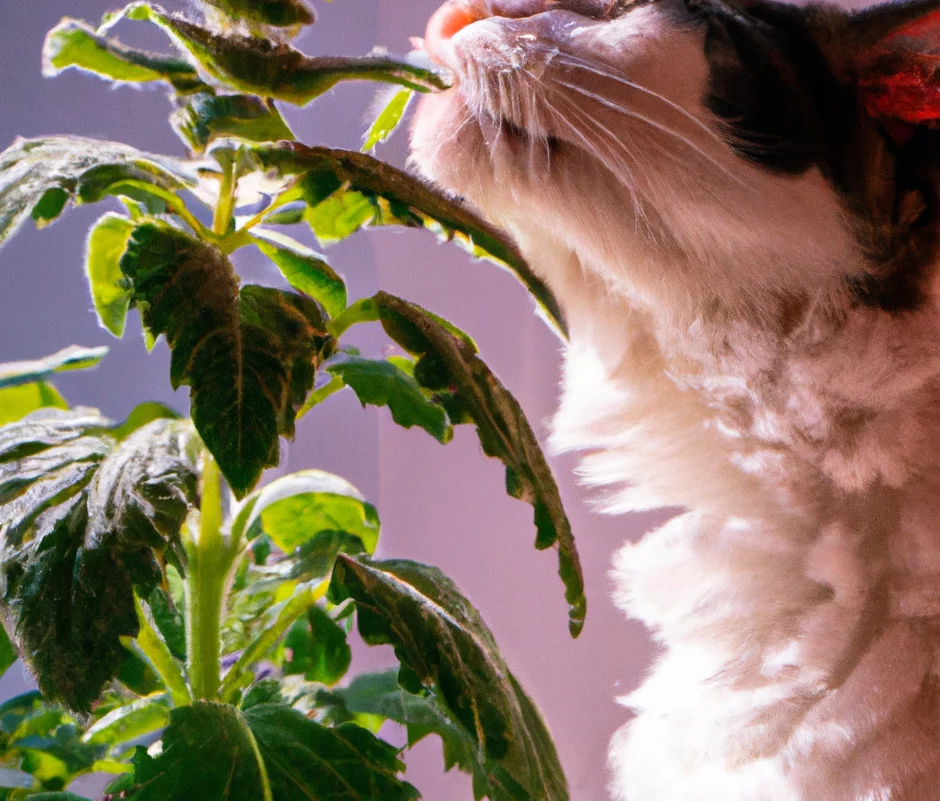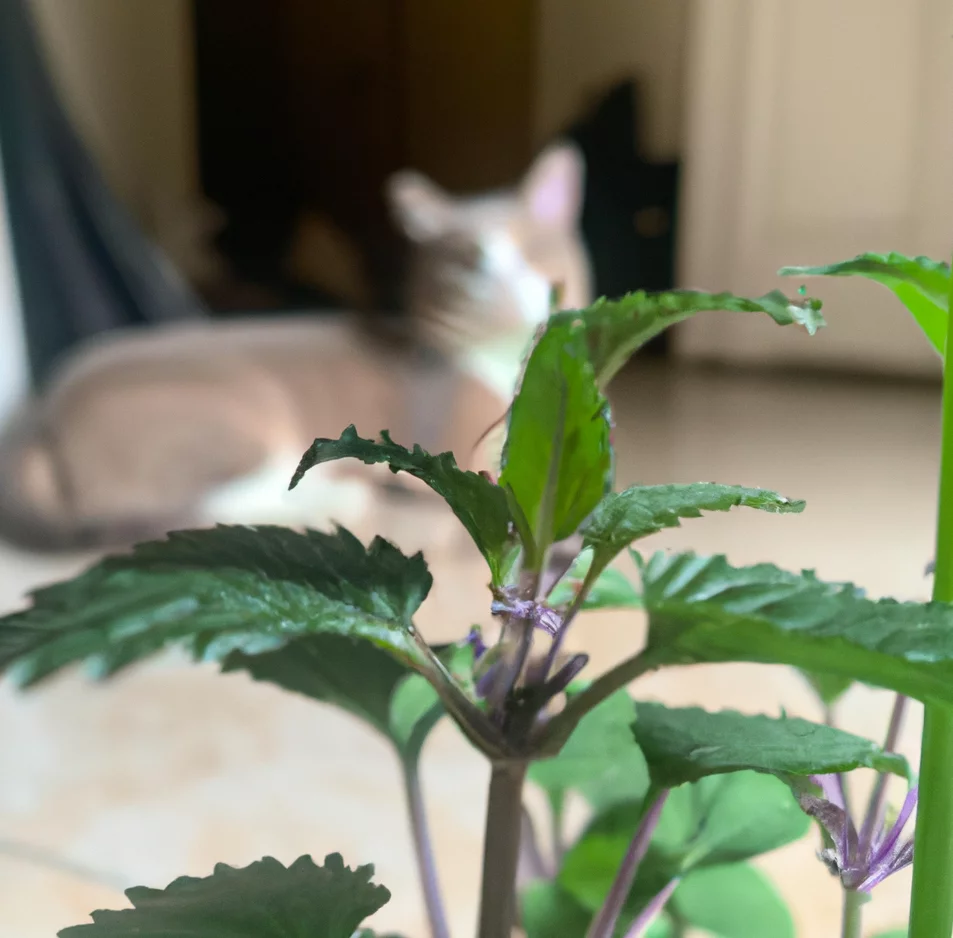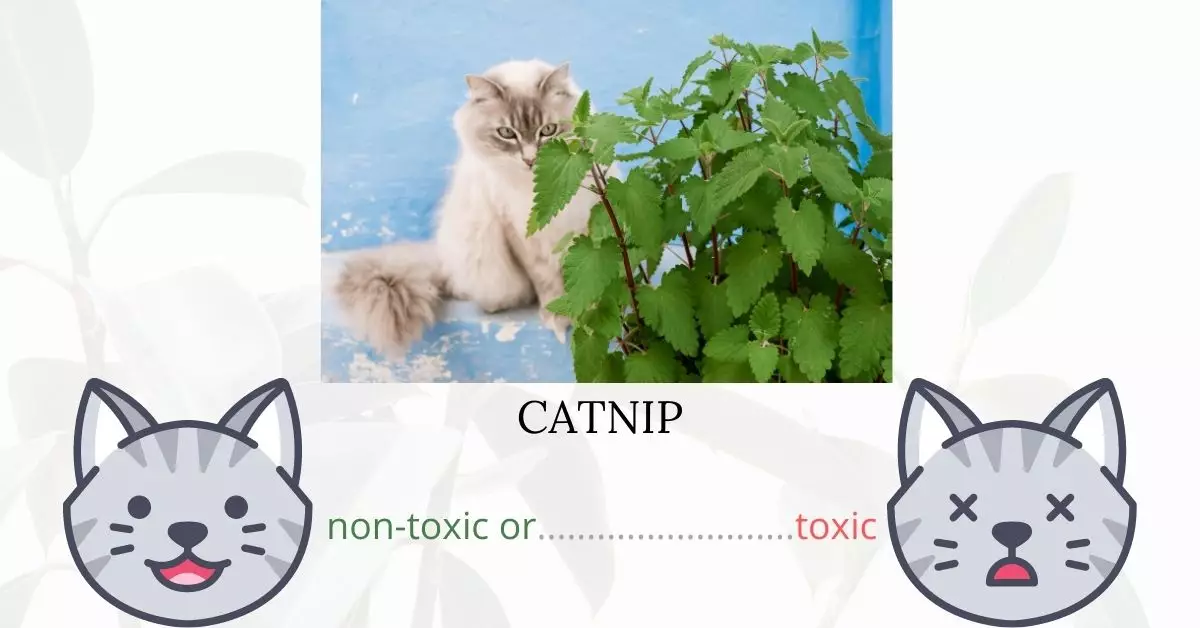No, Catnip is not toxic to cats. Commonly known as Catswort or Catmint, catnip is often adored by many felines due to its active component, nepetalactone. This compound interacts with receptors in a cat’s nostrils, eliciting behaviors like jumping, drooling, rubbing, licking, and rolling on the ground. While its effects can be likened to the response some humans have to certain drugs, the reactions in cats vary, and not all are affected in the same manner. Generally, catnip is safe for cats; however, excessive consumption of fresh or dried catnip leaves might cause stomach distress, vomiting, or diarrhea in some cats.
This article is the result of a collaborative effort with a team of experienced DVMs (doctors of veterinary medicine). Their expertise and insights enable us to offer accurate and current information regarding the potential risks and impacts of various plants, like Catnip, on feline health. Moreover, our findings have been corroborated by data from high-authority sources such as ASPCA and PetMD to ensure thorough and precise reporting on the subject.
Clinical Signs of Catnip Poisoning in Cats

While Catnip is generally safe and non-toxic for cats, excessive consumption or exposure can lead to mild adverse reactions. Understanding the clinical signs and the underlying reasons can help cat owners recognize and address any issues early:
- Diarrhea: Consuming an unusually large amount of catnip, especially in its fresh or dried form, can irritate the cat’s gastrointestinal system. This irritation can result in diarrhea as the body tries to flush out excessive amounts of the ingested substance.
- Vomiting: The ingestion of a substantial quantity of catnip might overwhelm a cat’s digestive system. As a protective response, the cat may vomit to eliminate the excess catnip, thereby preventing further irritation or discomfort.
- Lethargy: In some cases, an overexposure to catnip can cause a cat to become unusually tired or sluggish. This might be due to the overwhelming sensory experience, or the body’s natural response to rest and recover after any distressing event.
Although the reactions to excessive catnip consumption are typically mild, it’s always advisable to consult a veterinarian if any of these symptoms persist or if the cat appears to be in distress. Monitoring your cat’s interaction with catnip and ensuring moderation can help prevent these mild adverse effects.
First Aid and Treatment of Catnip Poisoning in Cats

Because catnip poisoning is primarily caused by a stimulant overload, there is no specific treatment. The poisons can be eliminated by the cat’s body on its own by digesting and excreting them through a bowel movement. In case of severe diarrhea and vomiting, you should bring your cat to the veterinarian for appropriate treatment. The veterinarian may also prescribe anti-vomiting and anti-diarrhea medications.
Recovery from Catnip Poisoning in Cats

Catnip poisoning has only a few hours of toxic effects in cats. Cats usually recover on their own, and in most cases, without the need for veterinary care. For severe cases of diarrhea and vomiting, your vet would most likely recommend giving your cat an ample supply of fluids to continue washing away the remaining toxins from his or her stomach.
Prevention of Catnip Poisoning in Cats
Keep any catnip plants out of reach of your cat’s paws. While a little nibbling on the leaves is unlikely to harm your cat, excessive consumption is not good for him. In any case, catnip should be used sparingly as an occasional, enjoyable treat for your cat.
If you love plants but have cats at home, check out these lists:





